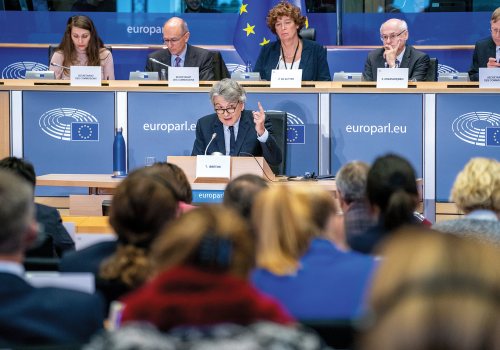Avoiding the next transatlantic security crisis: The looming clash over passenger name record data
As international travel takes off following the COVID-19 pandemic, a rift over a agreement to track passenger name record (PNR) data threatens to derail US-EU travel.
The transfer of PNR—personal data of air travelers including names, addresses, telephone numbers, credit card information, even meal preferences and details that can indicate ethnicity, religious belief, or political affiliation—on international flights has become a common practice world-wide since the September 11th attacks. The United States and the European Union (EU) have been sharing PNR data in some form since 2004, and a current 2012 agreement outlines how US authorities may use PNR data from EU flights incorporating certain privacy protections.
However, a judgment by the Court of Justice of the EU on the adequacy of another similar agreement between the EU and Canada has thrown the future of the US-EU agreement into question, as the Court ruled the Canada agreement must adapt greater privacy safeguards. The Commission has signaled that the US-EU agreement is also “not fully in line” with the Court ruling either, but the US government signaled no willingness to revisit the 2012 agreement.
The uncertain future of the US-EU PNR agreement, itself a product of years of talks, litigation, and renegotiations, puts airlines in a tricky spot. They must comply with US PNR requirements, but without a deal they could be financially liable for breaking EU data privacy rules. The transatlantic market is also crucial for airlines. Europe was the most sought-after destination for US citizens’ overseas air travel in 2019, and millions of passengers depart from EU member states headed to the United States.
With the future of PNR in question, Europe Center nonresident senior fellow Kenneth Propp highlights the importance of the PNR issue for US and European policymakers and proposes concrete steps to a future agreement. Read the issue brief about the urgent need to settle this often-overlooked but key component of US-EU relations.
Related content

Europe Center
Providing expertise and building communities to promote transatlantic leadership and a strong Europe in turbulent times.
The Europe Center promotes the transatlantic leadership and strategies required to ensure a strong Europe.


